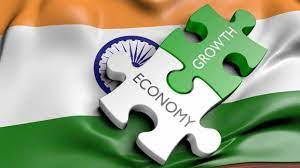NEW DELHI: India’s economic growth appears to be “very fragile” and it may fall short of what the country needs to meet the aspirations of its growing workforce, RBI Monetary Policy Committee (MPC) member Jayanth R Varma said on Sunday.
Varma said he expected inflation to remain high in 2022-23, but it would come down significantly in the 2023-24 fiscal.
“However, growth appears to be very fragile, and monetary tightening is compressing demand,” he said.
Explaining further, he said rising EMI payments increased the pressure on household budgets and dampened spending, and exports were struggling in the face of global factors.
While noting that high interest rates make private capital investment more difficult, Varma said the government was in fiscal consolidation mode, thus reducing the support to the economy from this source.
“Because of all these factors, I fear that growth may fall short of what we need to meet the aspirations of our growing workforce given our demographic context and income level,” he said.
The Reserve Bank of India (RBI) has projected India’s economic growth at 6.4 per cent for 2023-24. Gross Domestic Product (GDP) growth is estimated at 7 per cent in 2022-23, according to the first advance estimate of the National Statistical Office (NSO).
The Economic Survey 2022-23 projected a baseline GDP growth of 6.5 per cent in real terms for the next fiscal.
Varma, currently a professor at the Indian Institute of Management, Ahmedabad, said he sees global inflationary pressures dissipating in the months ahead as the supply shocks from the pandemic and from the Ukraine war gradually resolve themselves.
“The world is learning to live with the war,” he said, adding that, at the same time, monetary tightening is putting growth at risk across the world.
To a question on the Reserve Bank hiking the short-term lending rate, Varma opined that the balance of risks has shifted towards growth rather than inflation, and in this context, a pause is more appropriate.


